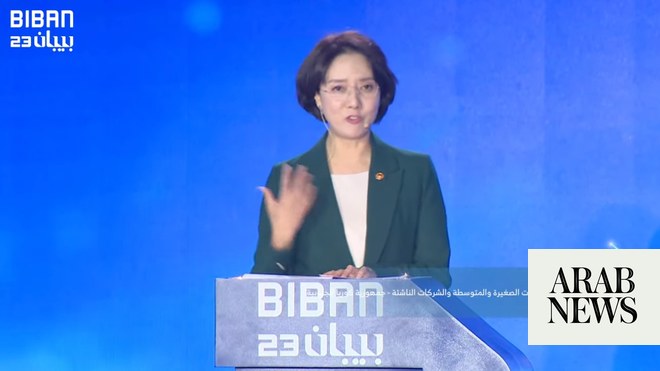
RIYADH: Saudi Arabia is a land of opportunity with a great chance of attracting investment in new sectors of its economy, the minister of commerce and investment, Dr. Majed Al-Kasabi, told delegates at the Future Investment Initiative (FII) in Riyadh on Thursday.
During the session “What’s next for Asia: Will a newly prosperous supercontinent overtake a waning West?” Al-Kasabi was part of a panel that included Ju Zhao, chief investment officer of China Merchants Bank and Raamdeo Agrawal, chairman & cofounder of India’s Motilal Oswal Financial Services Ltd.
Al-Kasabi pointed out that the Kingdom is rich in natural resources and ideally located to act as a connector between Africa, Asia and Europe.
“As you know, Saudi Arabia is the largest economy in the area. Saudi Arabia is a G20 member. It (was ranked as) a top reformer and a top improver in the World Bank’s ‘Doing Business’ report. (That is) a testimony to the promise that we have taken to improve business and fight bureaucracy,” he said.
He added that Saudi Arabia has “a unique mix” of competitive advantages: A robust business environment, and an increasingly young population, with 80 percent aged 45 or younger. But the “most important” advantage the Kingdom has, he said, is “our DNA.”
“Saudis are hospitable and generous to our visitors and investors,” Al-Kasabi said. “Saudi Arabia is a land of opportunities, especially when coupled with the unleashing of sectors like mining, health, tourism, entertainment, culture, and logistics. All of this makes Saudi Arabia a land of opportunities for the future.”
The commerce minister went on to cite various megaprojects that the Kingdom has undertaken as part of Saudi Vision 2030 and claimed that Saudi Arabia’s “rich blend of sun, sea and sand and archaeological sites,” make the country unique. All of which, he said, combined to provide an unprecedented opportunity for investors.
Both Zhao and Agrawal were keen to promote their own countries’ credentials for investors too. Zhao stressed how much China had developed in recent years, becoming “the main partner in energy and oil with Saudi Arabia” and diversifying its economy to rely on different sectors, rather than depending on a single source.
Echoing Al-Kasabi, Agrawal described India as “a land of opportunities” too. From its independence in 1947, he said, it took India 60 years to reach a trillion-dollar GDP. By 2025, the country hopes to be a five-trillion-dollar economy. “We want our economy to be the best in the world,” he said.
Al-Kasabi was bullish about the new Asian economic partnership, pointing out that 60 percent of the world’s population live in Asia, and that Asia is responsible for 40 percent of world GDP. “Amazingly, 64 percent of global cargo traffic comes from Asia, while 48 percent of global international students are from Asia,” he continued, adding that nearly 40 percent of global travelers were also from Asia.
Al-Kasabi went on to describe China’s economy as “iconic,” and paid tribute to Japan, Singapore, and India, which he called “matured and developed economies,” while referring to Vietnam and Bangladesh as “the newcomers.”
“Then there is the Middle East, where Saudi Arabia fits as a connector between Africa and Europe and Asia,” he said. “The Middle East and Saudi Arabia could be a global connector and a hub to Africa and Asia and Europe.”








